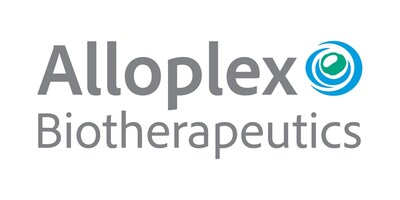Cancer trial: retraining immune cells offers new hope for patients in personalized medicine breakthrough
Comunicato Precedente

Comunicato Successivo

While the science behind SUPLEXA is sophisticated, the process for patients and clinicians is surprisingly straight-forward. A single 50 mL blood draw from the patient is all it takes to develop a complete course of SUPLEXA therapy. With nothing more than standard lab equipment, the patient's white blood cells are isolated and 'trained' outside the body (ex vivo) using Alloplex's proprietary ENLIST immune cell training technology. About a month later, the enhanced blood cells are infused into the patient, where they not only seek out and destroy rogue cancer cells — that had, until then, evaded the immune system — but improve the overall immune health of the patient.
Full results of the first-in-human trial[2] will be released at the 2024 SITC conference in November. The Australian study showed no treatment-related serious adverse events — unsurprising, given that SUPLEXA is made from the patients' own immune cells that have simply undergone a training process to improve their functionality before being reintroduced to the patient.
Remarkably, and in addition to its strong safety profile, SUPLEXA transformed the lives of patients with various cancer types. Its most striking results were observed in patients with a specific type of advanced colorectal cancer (CRC) and renal cell carcinoma (RCC). Three CRC patients derived significant clinical benefit: one achieved a complete response (CR), another a partial response (PR) and another stable disease (SD). "Many of these patients sustained a strong clinical response for up to two years," said Dr. Borriello.
Of the ten RCC patients, one achieved a partial response (PR) and six achieved stable disease (SD) while only 3 had progressive disease (PD). Patients with other solid tumors, including melanoma, breast and lung cancer, also demonstrated long-term SD with SUPLEXA.
While quality of life assessments were not formally captured in this study, patients reported improvements in their well-being, a reduction in pain and improved symptom control.
For the participating patients who had exhausted all standard treatment options, "SUPLEXA has been a remarkable experience," said Principal Investigator, Assoc. Professor Rohit Joshi[3], who led the first-in-human study across three sites in Australia[4]. "It's also allowed them to continue with their normal lives, have a vacation, take up new hobbies and spend more time with family and friends," said Assoc. Prof. Rohit Joshi.

FDA Opens Door to Proceed
With encouragement from the FDA to proceed with an Investigational New Drug (IND) submission, Alloplex Biotherapeutics plans to initiate Phase 2 clinical trials of SUPLEXA in early 2025. The trial will combine SUPLEXA with immune checkpoint inhibitors (ICIs) in patients with a specific type of colorectal cancer. The goal is to test, in a controlled clinical setting, whether SUPLEXA's complementary mechanisms can enhance patient outcomes by amplifying the effectiveness of ICIs, which are the standard of care for this type of cancer.
Notes:
Full Media Kit: An extensive library of backgrounders, Q&As, images (including headshots) and videos is available at https://alloplexbio.com/presskitoct24/
Media Contact Email: [email protected]
![]() View original content:https://www.prnewswire.co.uk/news-releases/cancer-trial-retraining-immune-cells-offers-new-hope-for-patients-in-personalized-medicine-breakthrough-302292419.html
View original content:https://www.prnewswire.co.uk/news-releases/cancer-trial-retraining-immune-cells-offers-new-hope-for-patients-in-personalized-medicine-breakthrough-302292419.html

Ufficio Stampa
PR Newswire (Leggi tutti i comunicati)
209 - 215 Blackfriars Road
LONDON United Kingdom




